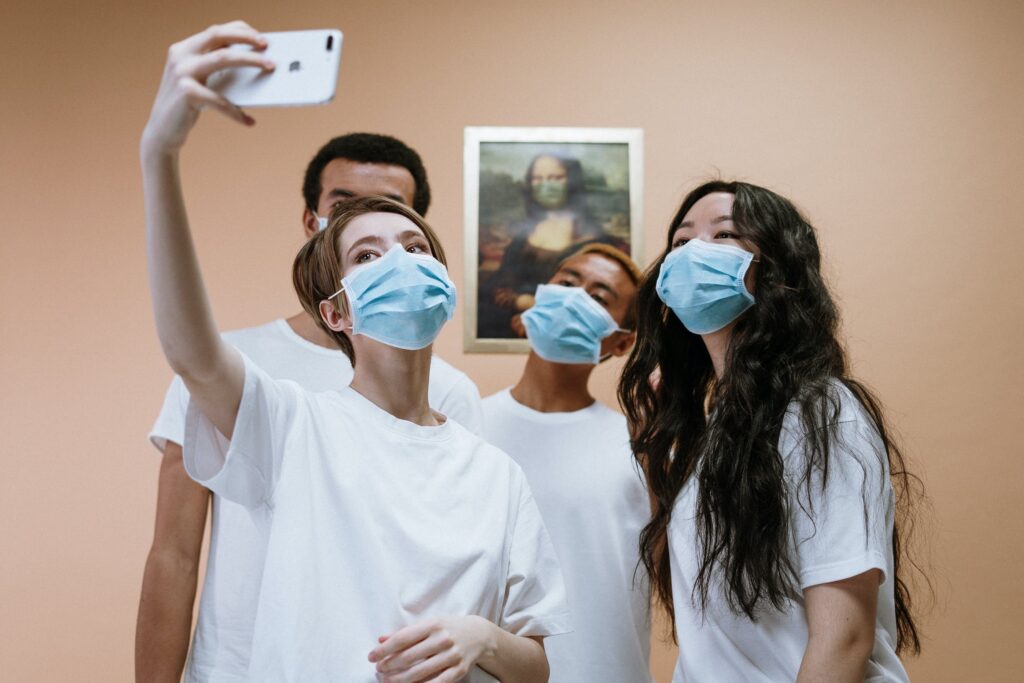
TechRepublic’s Karen Roby spoke with Brian Solis, global innovation evangelist at Salesforce and bestselling author of several books, about what he calls Generation N and how the COVID-19 pandemic has affected business. The following is an edited transcript of their conversation.
Karen Roby: How our lives have changed since we last talked! This is why I was really glad to talk to you today, because Generation N! This is a concept I want you to explain, and tell everybody, what does this mean? What does it mean for business?
Brian Solis: I think the last time we spoke, I was just coming out with some new research that introduced the Novel Economy, which was breaking out into three phases what the next 18 to 24 to 36 months look like. That way it kind of gave us some construct, instead of just talking about the new and next normal. It kind of gave us a path forward. Since then, my research has been hyper-focused on how customers, whether it’s B2B or B2C, have changed as a result of shelter-in-place, becoming digital-first because of novel coronavirus and COVID-19.
Generation N is the name I gave this new growing category of consumerism because it is so different than the way that we think about traditional customers in the past. As a quick, high-level overview, when we had to shelter in place, we had no choice but to use digital, for all of our communications, for all of our shopping, for all of our news-gathering, and fake-news-gathering.
Before the pandemic, there was already a massively growing contingent of consumers that were already digital- and mobile-first. So, when they came into shelter-in-place, they knew what to do. But everybody else, the laggards, the digital-casual folks, they also had to become digital-first, and that started to transform the group as a whole. If you’ve never ordered your groceries, if you never did buy online, pickup in store, curbside, or delivery, suddenly you were doing these things, and you were introduced to the conveniences that were [available].
We saw, for example … Target, I think, saw a 250% rise in buy online, pickup in store, and curbside sales. McKinsey estimates that we experienced 10 years of e-commerce acceleration in 90 days. What that means is that you have, not only a digital-first customer who’s now to expect these conveniences, but you also have the somatic marker, the emotional bookmark, that is COVID-19. The stress, the anxiety, the worry. Ipsos data shows that 71% of customers are not going to go back into retail, just because of concern for their health and safety, and also when they can get all of this stuff online and save a lot of time in the process.
And then lastly, why Generation N or Novel, is because it is only growing. It’s only disruptive, and it helps businesses focus on where they can accelerate toward their high-value customers. I’ll tell you why. McKinsey also showed that 75% of customers, since shelter-in-place, have experimented with a new brand, retailer, or website, and 60% of them said that they’re going to stick with the new decisions moving forward. So that means loyalty is up for grabs. That means we are experiencing true disruption, beyond just COVID. And now businesses have a sense of urgency, not just to establish working from home or setting up digital channels. They now have a sense of urgency to compete for Generation N as they evolve.
Karen Roby: It’s been fascinating, Brian, I think, to watch as people, like you were mentioning, that didn’t take advantage of the convenience of shopping online before, or getting their groceries online. Maybe it was some of the older generations, who just wouldn’t do that before because it’s out of their comfort zone, but then they were forced to, and it’s like, “Oh wow, what an amazing concept.” With my parents, for that matter, I’ve watched that happen. So to have this Generation N, and like you said, that their loyalty is up for grabs. A lot of companies, their digital transformation plans have failed in the past. Talk about relationship transformation (RTx), as we’ve hit on. What does that mean? What does this all look like now that we’re in this new place?
Brian Solis: Our own research, Salesforce research, shows that 84% of customers expect a good experience, and that they value a good experience as or more than a product or service that the company offers. And that’s game-changing, right? And you add to that the McKinsey data and the Ipsos data that we’ve reviewed. And now what you have is a sense of urgency on one side, and also an opportunity, I think. I’m an optimist, so I want to see the good in all of this. And essentially what we have learned before COVID was that, yes, four out of five digital transformations were estimated to fail or to struggle. And my colleague Henry King and I have been researching, what can we do to help organizations think about digital transformation differently now?
If you think about, Phase One of the Novel Economy was all about reaction to the crisis. Stabilization, business continuity. So, for example, working from home. How do we get our entire workforce or team to work from home overnight? How do we at least set up some digital channels that didn’t exist before? How do we think about automation? How do we think about chatbotswhile we’re trying to figure out service from home? Now we’re starting to hit Phase Two, which is going from “survive” to “alive.” And Phase Three is “thrive.” We’re not there yet, but right now it’s the choices that we make. Are we going to try to get back to this normal or this new normal, or are we going to think differently about how we move forward?
Generation N introduces an opportunity to study, post-March 1 [2020] all of the data, across functions, that can give us insights of where we can innovate and where we can improve operations and also business model innovation. And why this is important is, if you’re the C-suite side, if you’re on the IT/CIO side of things, if you’re on the product side of things, we’re all working toward the same end, which is to build relevance, resilience, and also better relationships with customers. I think we could call that the three Rs. I just made that up!
Karen Roby: Write that down!
Brian Solis: Yeah, I got to write that down, because that’s what relationship transformation is all about. Or RTX, as we call it, which is essentially taking a step back, before we get into our roadmaps of all of the things that we need to do from a digitization standpoint, is look at the why. Or as Simon Sinek famously said, “What’s the purpose of what we’re trying to do, and what does the outcome look like?” And it doesn’t have to be 18, 36 months from now. What’s the outcome of this investment look like?
If I had to make the argument, I think that not only is loyalty up for grabs, but relationships are up for grabs, too. It’s highly competitive, and we have to reimagine. If you think about why so many customers experimented with different companies in the last 90, 120 days, it’s probably because the digital experiences that they were having with organizations was substandard or outdated or obsolete. If you think about D2C (direct to consumer) companies, not only are they fresh and hip and cool, but their journeys are hyper-digital customer-centric. So they’re intuitive, they’re platform-native they’re personalized, and that’s probably why people are experimenting today.
Relationship transformation essentially gives your purpose to digital transformation and saying, how are we going to rethink the journey? How are we going to rethink BOPIS (buy online, pick-up in store) and curbside and delivery? How are we going to rethink our site? How are we going to rethink service? How are we going to talk to each other so that the customer gets that intuitive experience that they need. Especially at a time where they have so many other things to worry about, right? Like health and the economy and politics and relationships in their own right. Why couldn’t we deliver some light in their world?
Karen Roby: Absolutely. And you touched on this just a little bit here, Brian, when you talk about C-suite, CIOs, CTOs, CISOs specifically. Their role is really changing, and how they may be valued within a company or how a board of directors now looks at these guys and gals. Talk a little bit about how the role of the CIO/CTO is changing in the midst of all of this.
Brian Solis: It’s sort of user-defined, I think, is a good way to put it. It’s changing, and it can continue to change, based on the role you want to play in organizational transformation, but also in this great opportunity of innovation. What that means is that it’s not just so much about “What technology are we going to implement,” especially now that we’re in this fourth industrial revolution. We have so many technologies to consider, from cloud to 5G to automation, (artificial intelligence) AI, (augmented reality) AR, (virtual reality) VR, all of these important technology movements. I think if you think about how you want them to not only be implemented within your organization, but coming back to that RTX, or the “why,” you now become a partner in the business.
You’re a stakeholder in this, and it implies that now it’s bigger than the role that you were in before March, even yesterday, and that you also have an opportunity to lead forward in, I’ve been calling it “disruptive digital transformation,” which is splitting your investments, looking organizationally, “How can we make improvements in operations?” but also “How can we strive for operational excellence with all of these things?”
Also, “Partner with our business units or lines of business,” or however you’re organized, “to figure out, how can they be our customers? How can lines of business be our customers, so that we can help them understand Generation N and the whole new world outside of them, so that they can be successful in their own right, so that they can make investments that help them compete more effectively than they’re competing today, even if they don’t see it for themselves?” It’s almost like you become an internal strategist, and also technologist, to help the organization become resilient and innovative.
Karen Roby: Excellent. So many pieces to this puzzle, Brian, and so many moving parts, because we’re in a place that we’ve obviously never been in before. I mean, these are unprecedented times, and companies are really having to move quickly and make changes and difficult decisions.
Brian Solis: One of the reasons why I called it the Novel Economy in the first place is because the word novel, like “novel coronavirus,” just means new and unusual. And there’s no real playbook, just like with the pandemic. There’s no vaccine. There’s no, “Hey, in times of global pandemic disruption, do X, Y, and Z,” and the same is true for business. I think we’re having to figure it out. And I think there’s the blessing in that, that we can control-alt-delete this moment and kind of strive toward that future that we’ve always talked about, or long put off because we didn’t have the time or the resources. I think this is that time to actually reinvent business moving forward. We have the opportunity. We now just need the vision and the inspiration.

Brian Solis | Author, Keynote Speaker, Futurist
Brian Solis is world-renowned digital analyst, anthropologist and futurist. He is also a sought-after keynote speaker and an 8x best-selling author. In his new book, Lifescale: How to live a more creative, productive and happy life, Brian tackles the struggles of living in a world rife with constant digital distractions. His previous books, X: The Experience When Business Meets Design and What’s the Future of Business explore the future of customer and user experience design and modernizing customer engagement in the four moments of truth.
Invite him to speak at your next event or bring him in to your organization to inspire colleagues, executives and boards of directors.





Leave a Reply